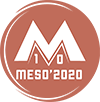This paper explores the relationship between the archaeology of the European Mesolithic and the broader field of hunter-gatherer research, encompassing archaeological and anthropological approaches as well as a range of advocacy and activist positions. We begin with the contention that Mesolithic archaeology has generally been a ‘consumer' of information from hunter-gatherer anthropology and has, to date, contributed little back; a disconnection that has left several major themes within broader hunter-gatherer research overlooked within the context of the Mesolithic. This will be demonstrated through an analysis of the engagement of archaeological and anthropological perspectives at recent CHAGS conferences, and a reflection on the impact that a general lack of indigenous hunter-gatherer groups in Europe has had upon the way Mesolithic archaeology is practiced.
We argue that this one-way dynamic represents both a missed opportunity and neglected obligation. The European Mesolithic boasts a combination of significant quantities of very high-quality archaeological and palaeoenvironmental data, alongside a suite of ever-improving analytical techniques. As such, Mesolithic research is uniquely placed to provide us with compelling behavioural information regarding temperate-dwelling hunter-gatherer societies over the longue durée. Equally, Mesolithic research is founded on the insights gained from the study of hunter-gatherer groups. Yet we contribute little towards the advocacy of the rights of our hunter-gatherer contemporaries who are rapidly disappearing in the face of a myriad of social, economic and environmental threats.
Within the context of the extreme marginalisation of hunter-gatherer groups, Mesolithic archaeology presents one of the very few opportunities to address a range of key questions for hunter-gatherer studies. These include (but are not restricted to); hunter-gatherer behaviour in pre-colonial contexts, resilience and vulnerability to changing environments, and interactions between hunter-gatherers and different types of societies (of varied economic models). In all of these areas, Mesolithic archaeology has the potential to make a significant contribution to broader debates within hunter-gatherer studies, through the analysis of relatively high-quality datasets. And yet this potential remains to be fulfilled. We will conclude our paper by reflecting critically on why this is, and in doing so set out a series of new challenges for Mesolithic research.

 PDF version
PDF version
